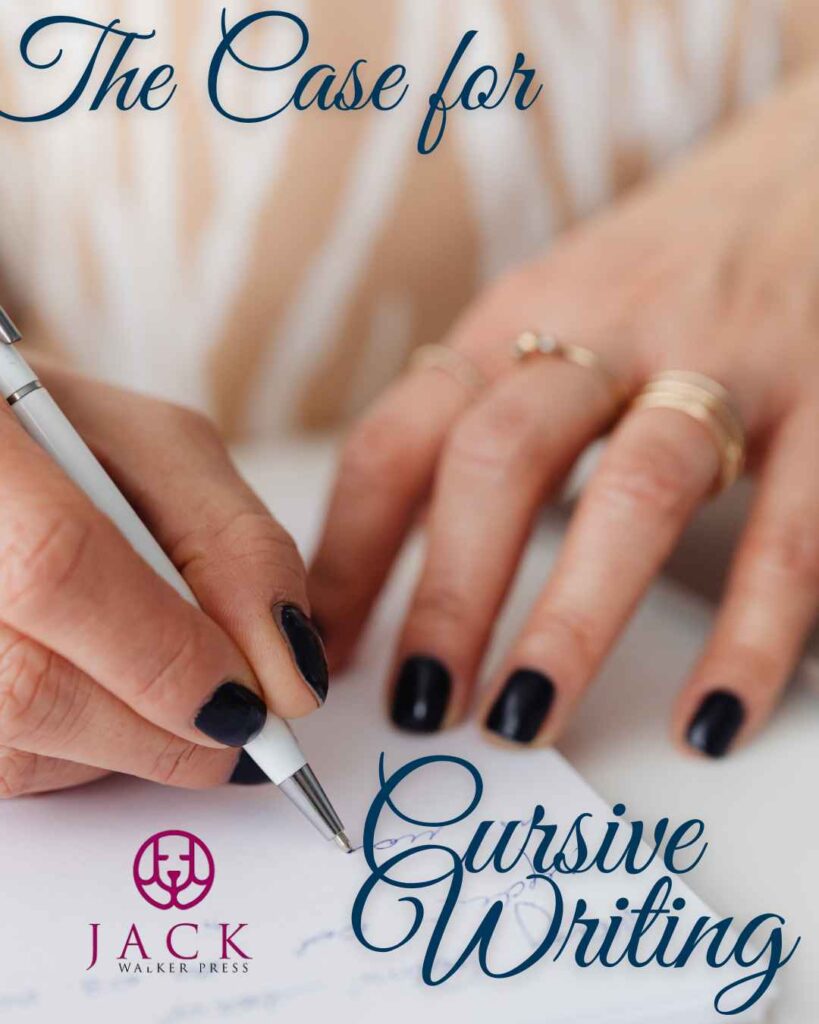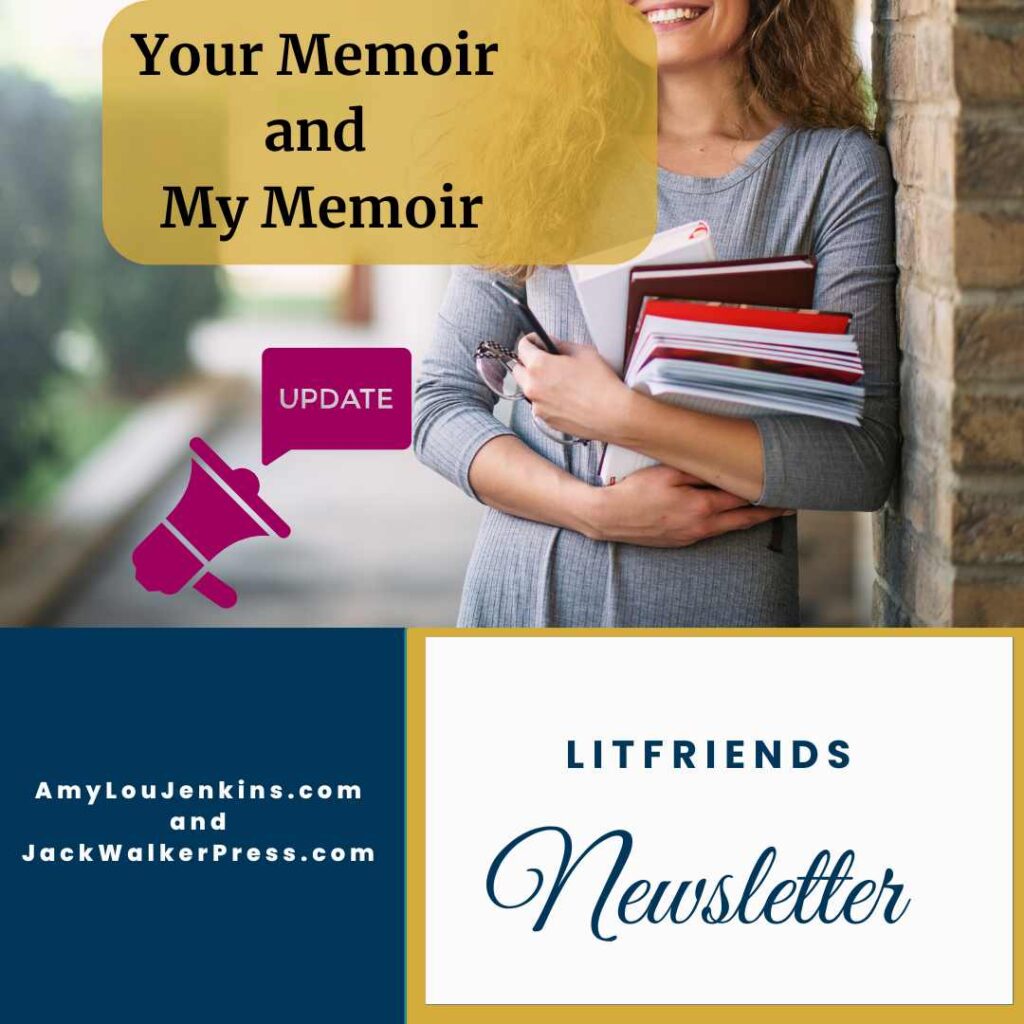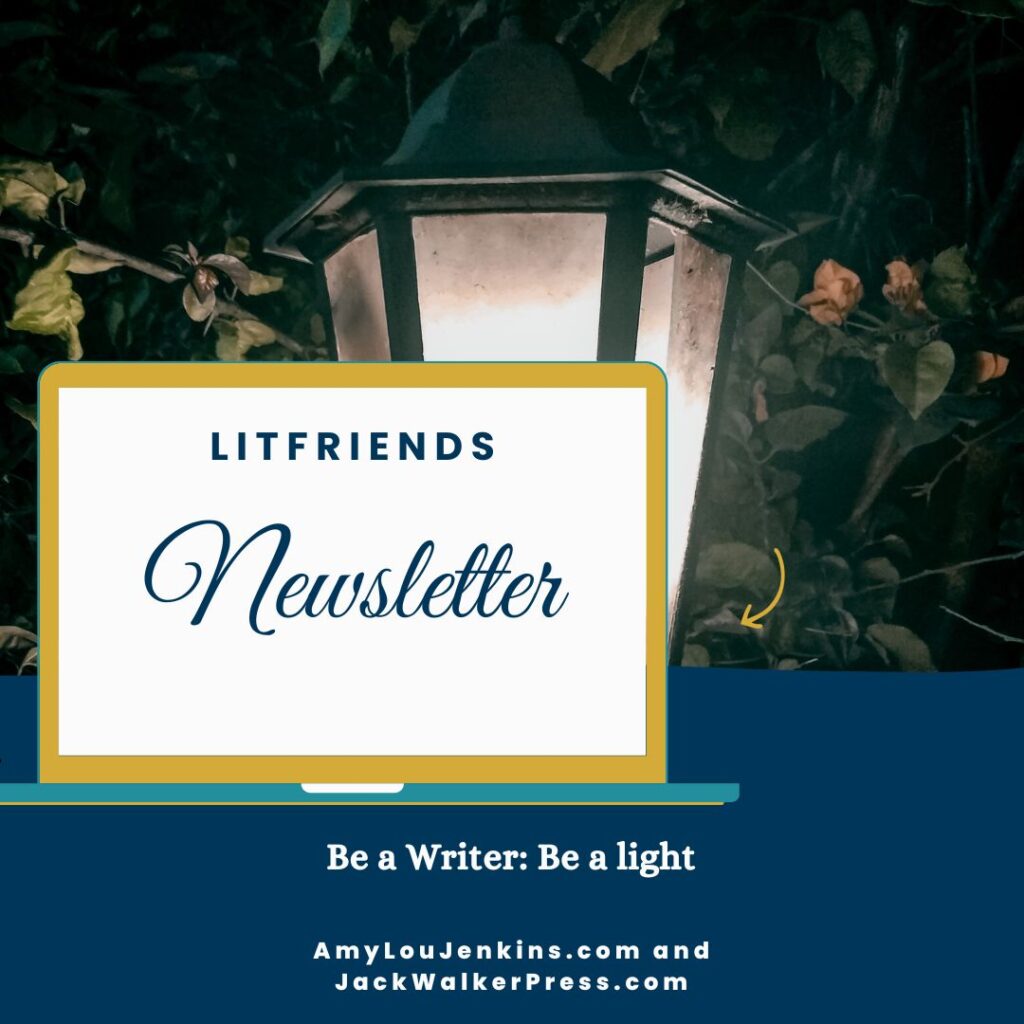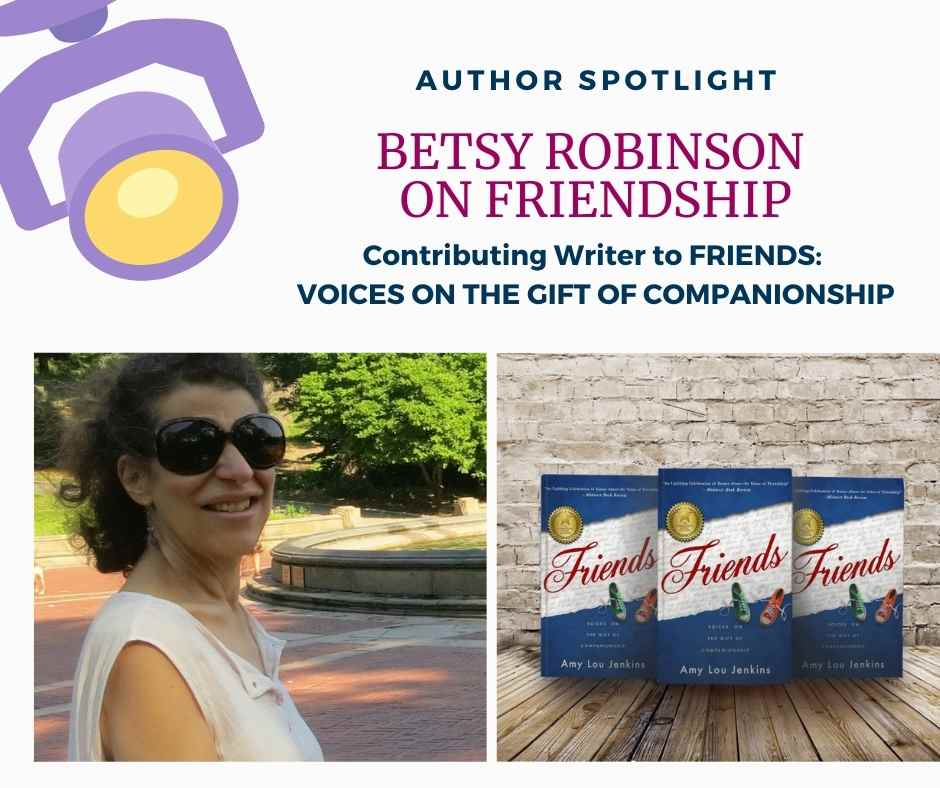
Betsy Robinson and Amy Lou Jenkins in a Conversation About What can be Learned Within Friendships of Contrast
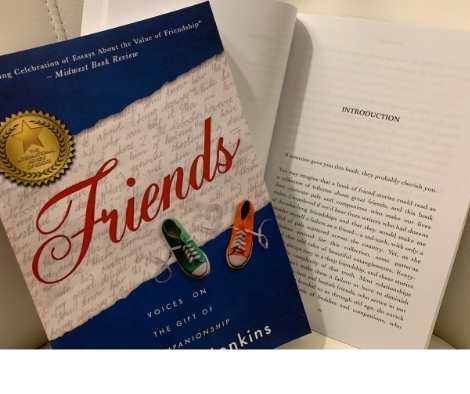
ALJ Hi Betsy, I loved your essay, ‘Two Kinds of Gardeners,’ in Friends: Voices on the Gift of Companionship and I admit, I tend to be a plant coddler too. Sometimes when watching movies, I cannot keep quiet about how a plant in that dark part of kitchen would die, or how those flowers would not really be blooming at that time of year. My friends must forgive me. Your friend Angie had a more ruthless streak when it came to plants.
BR That's so funny. I do the same thing watching TV! And especially now on news shows with people mocking up backgrounds for video participation and putting plants behind them that could never survive living where they've been put. It's a kind of diseased thinking this way, huh?
ALJ Seems perfectly normal to me!
How long have you and Angie been friends and how did your friendship begin?
BR We started becoming friends in 1990 after my mother died. I've lived in my building (top floor, last apartment) more than 45 years and she's been here (first floor, first apartment) a decade or so less, but I didn't know her before 1990. I'd see her in the hallway and think she looked angry. She only wears black. And most of the time she'd also have on dark glasses. I thought she was scary. But I ran into her right after my mother died and I was bringing my mother's dog, Rosie, to live with me and my dog, Daisy. And as explanation about bringing a second dog in, I told her my mother had died.
Angie lost her mother when she was a teenager and it was a seminal wound that's never really healed, so she reacted with an empathy that surprised me, then she left a hyacinth at my door. I was stunned. I hardly knew her.
Anyway, after that, we made a long attempt at friendship, but she was so neurotic with so many hidden triggers that it ended with her furious at me. There was a long gap of no contact. Then suddenly we started talking again. And over decades we learned how to be with each other. I've been sure the friendship was over many times, but it still has not ended, and it's been 30 years. She's like dysfunctional family. We've both gone through slow evolutions. She's a person who fights with people, and before her, I never fought with anyone. I just walked away. But she has taught me how to fight and stay friends. It's complicated and pretty amazing.
ALJ Has Angie read your essay? How did she respond to it?
BR She hasn't read it. I've told her about it several times and offered to show her a copy, but she has not responded at all or shown any interest. So that's her answer. Which is fine with me.
ALJ How have you maintained your friendships during social distancing requirements?
BR No problem. I'm a hermit by nature so it's not that different for me. Angie and the man she's been with for 40 years live in different apartments, and during the pandemic she's stayed at his place. I've been watering her plants since March. And if you can appreciate the irony: I let one die because I forgot to look at it when my dog became ill. I was so stressed that I didn't even see it dying outside on her windowsill. I've apologized over and over. There is presently construction/renovation repair scaffolding up over the whole front of our building, keeping everything inside and outside her window in the dark., It probably would have died anyway, but this is my fault. She's forgiven me.
Regarding other friends—I have a handful of close friends spread out over the country. We stay in touch by phone and email, same as usual since we aren't in the same place. One of my closest friends lives in Alaska, and we met online. It stayed that way through us writing a book together, until I finally went to visit her, so now we're real daily friends who communicate online. I'm not a gabby person and the people I'm close to are ones I have deep comfort with. I don't miss chatting or group socializing. I'm fine.
First Paragraph Excerpt of TWO KINDS OF GARDENERS by BETSY ROBINSON
An urban landscape designer I know says there are two kinds of gardeners: the coddlers and the pragmatists. My sick ward of houseplants rescued from New York City garbage cans inspired her remark. She specializes in high-rise terraces and exquisite window boxes in brownstone front windows. She places a high priority on the right look; if a plant doesn’t perform, she chucks it.
Books by Betsy Robinson
Plan Z by Leslie Kove (Kindle & paperback)
A funny and poignant novel about negotiating life without a plan, without a clue.
Girl Stories & Game Plays (Kindle & paperback)
24 stories and 3 one-act plays—a feast of silly, serious, strange, sexy, transcendent, and laugh-out-loud funny stories and plays with playable scenes.
The Last Will & Testament of Zelda McFigg (paperback)
A raucously funny new novel about doing whatever is necessary to survive. Winner of Black Lawrence Press's Big Moose Prize.
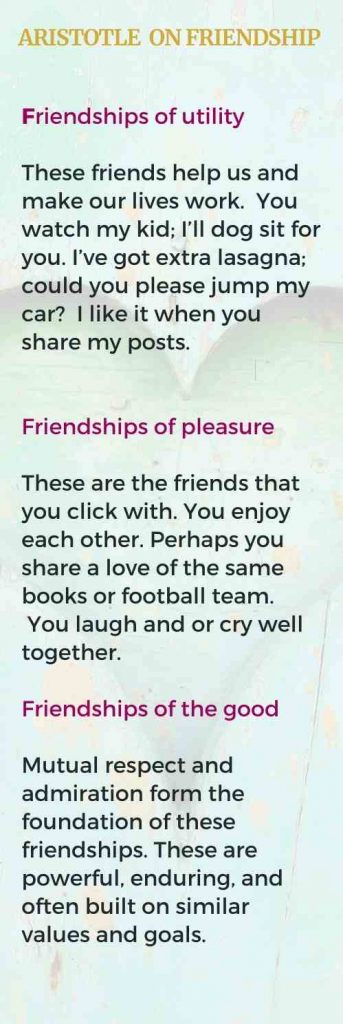 ALJ How do you see your friendship with Angie, as compared to Aristotle’s framework on friendship. Does the friendship fall into one category and has it evolved?
ALJ How do you see your friendship with Angie, as compared to Aristotle’s framework on friendship. Does the friendship fall into one category and has it evolved?
BR Our friendship doesn't fit into any of those categories. If you look at us, you can't figure out why we're friends. We have little in common and have struck out at attempts to socialize outside of phone calls and walks or apartment conversations. Angie likes to plan every last second of going to an event and in order to do anything like that with her, you must do it the way she wants to do it. I can't have fun that way. So I think we both accept the limitations of this friendship. But there is something so deep for both of us. We have changed each other. So it's more like a friendship for mutual growth. Maybe Aristotle missed a category.
ALJ Your acceptance of each other is admirable. I know I’ve spent too much time wishing another person could be different, instead of considering what kind of friendship we might have. Your description ‘so deep’ affirms for me that there is no need to squish this relationship into one of Aristotle’s categories. We will just add ‘ Friendship of Mutual Growth’ to his list.
I see you edited and represented your Mom’s book. This sounds to me like you and your Mom had a special relationship, yet your book video describes your childhood as a place where you ran wild: ‘a house of funny mirrors.’ Did you and your Mother come to have a relationship that could be also be described as a friendship? And how did you come to be involved in the editing and publication of her novel?
BR My mother and I went through an amazing evolution and transformation. When I was a child she and my father were pretty crazy and ill equipped to be parents. My father committed suicide when I was 17, in 1968, and a few years later, my mother got sober. So that was an improvement. But I and my siblings left as soon as we could make it out of there. It was a hell house.
When I was in my 20s, my now sober mother and I began having lunch together when I was working in NYC and she had moved here. It's a long story of change, but suffice it to say, I finally realized she knew we kids had had it rough as children, but she really had no memory of any of it or awareness of what had happened. The biggest change happened one day when I asked a question about a past trauma-inducing event. She didn't remember it, and when I told her what she'd done and what had happened, she fell apart. It was at that moment that I really "saw" her and realized she was not made to handle a certain kind of truth and responsibility for it. And I loved her (and still do), and I grew up and never wanted to hurt her again by bringing up the past. She, too, realized at some point that she didn't want to hurt me. We accepted each other as present-day adult friends. And the last 10 years of her life were one of the greatest friendships I've ever had or can imagine having. She was hilarious and I really miss the laughs we had.
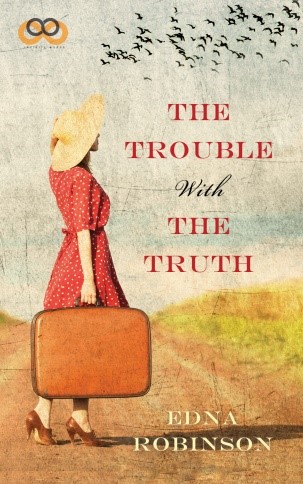
We wrote two screenplays together, so we became professional partners, and she left me her manuscripts in her will. There was a shallowness to her understanding of character—what I was talking about earlier: an inability to really see her own flaws and shadow and write with honesty. The novel, however, was fixable. All the structure was there, but it needed subtext laid in, which I did. So I edited and doctored it. It's her work. I never could have written this. And her writing is gorgeous literary writing. But there were problems because of her inability to understand the depth of hidden feelings. Doing the work on her novel felt like a deepening of our friendship. A healing.
When you edit, you are inside a writer's head. So there I was at age 62, understanding almost firsthand what my mother had felt when she was her 30s typing this story, and I got an even deeper understanding of her and her confusion, and my compassion expanded for her endurance to survive everything she did. I admire her more now than I did when she was alive. The older I get (she died at 68 and I'm 69 now), the more detailed is my understanding.
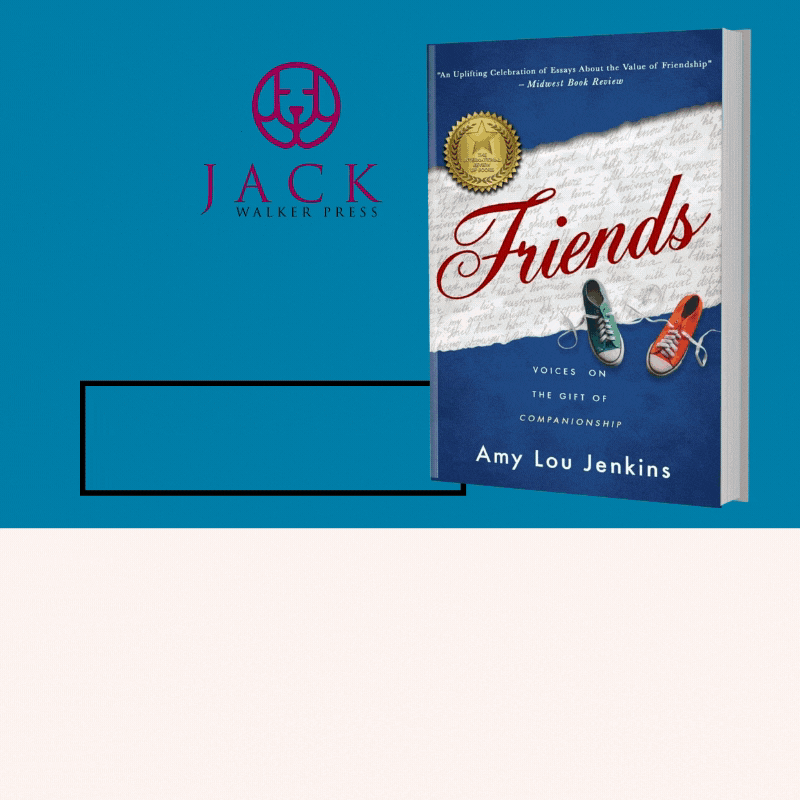
ALJ You've been generous with the reader in your essay within 'Friends' and in this conversation about the great value that comes with friendships for mutual growth.
Thank you Betsy.
About Betsy Robinson
Betsy Robinson’s novel, The Last Will & Testament of Zelda McFigg, was published in 2014 as winner of Black Lawrence Press’s Big Moose Prize. Her edit of The Trouble with the Truth, a novel by her late mother, Edna Robinson, was published in February 2015 by Simon & Schuster/Atria/Infinite Words. Her first novel, Plan Z by Leslie Kove (called “one of the funniest book I have read . . . a fabulous read” by Sixth Sense radio, KKNW, Seattle), was published by Mid-List Press in 2001 as winner of their First Novel Award Series, and after it went out of print in 2016 Betsy published a revised edition. Her story and play anthology Girl Stories & Game Plays includes Chronogram Magazine's short story first place winner “Jakey, Get Out of the Buggy” and the full script of the play Darleen Dances, whose opening monologue was published in the best-selling actors monologue book, Moving Parts (Viking Penguin, 1992).
For more than a decade Betsy was an actor (Return of the Secaucus 7; Lianna; and assorted fools, clowns, and sexy wenches all over Off-off Broadway). She is also a playwright, and her scripts have been produced at the renowned Eugene O'Neill Playwrights Conference, Theatre in the Works (Amherst, Massachusetts), in Los Angeles, Off-off Broadway, on cable TV, and in Iowa where she won first prize in the Dubuque Fine Arts 1-Act Contest. With her mother, she received a Writers Guild East Foundation Fellowship to write a movie, still unproduced, called The Love Convention.
Betsy is a book editor specializing in alternative therapies and spiritual psychology. She has been on staffs of Parabola and Spirituality & Health magazines.
More information about Betsy Robinson
Explore 'Friends'
Latest from Dispatches From AL
